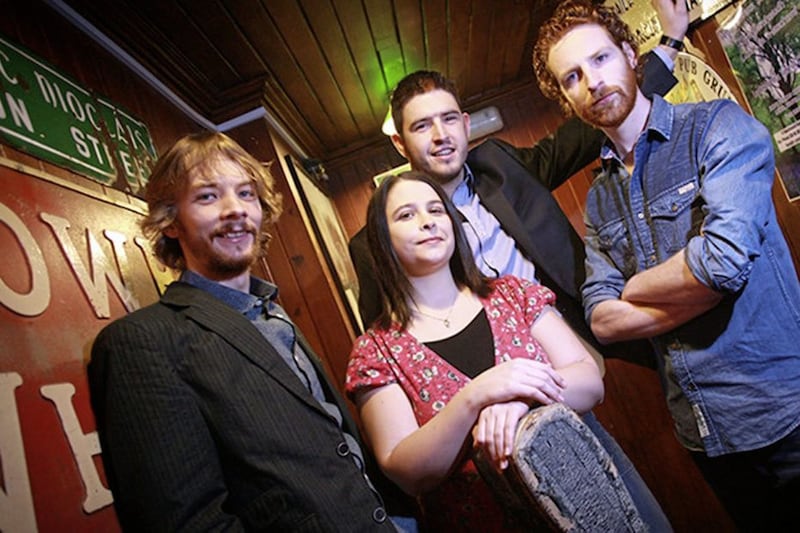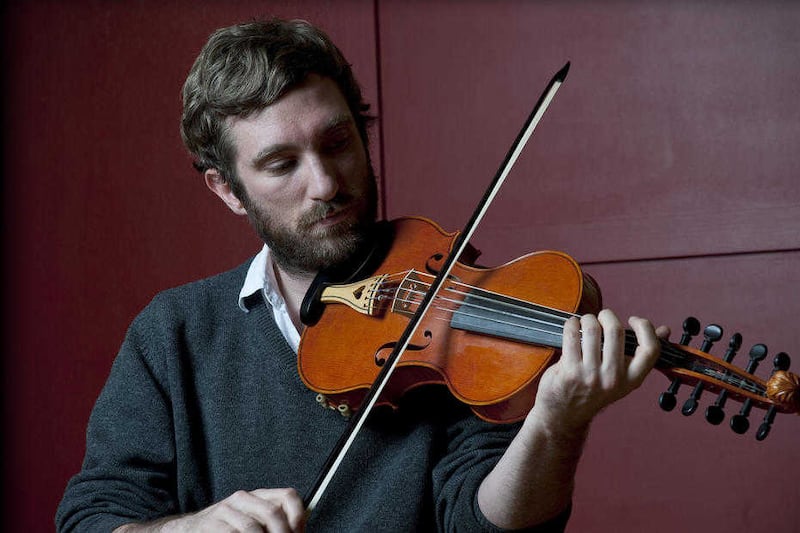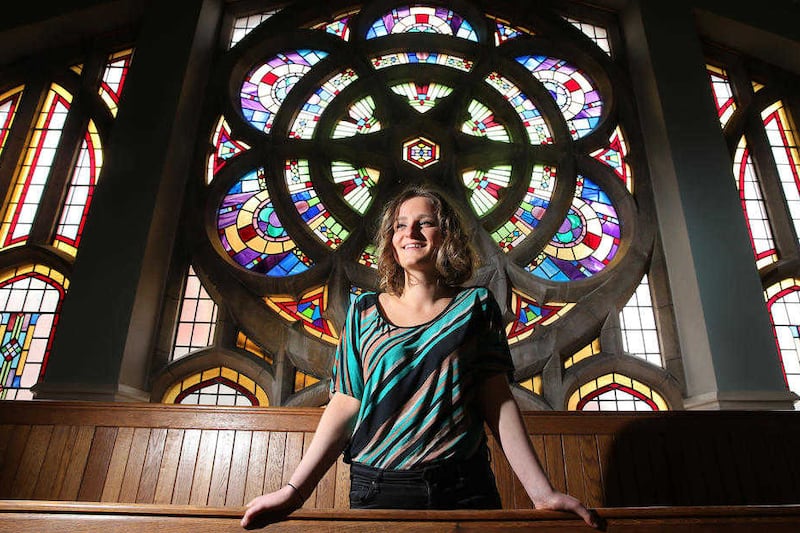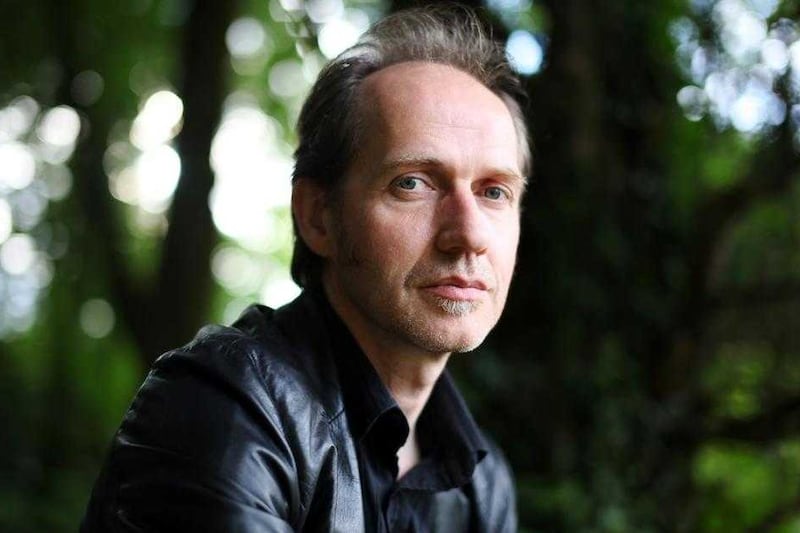IT MIGHT be a complicated journey from the cochlear nuclei, the brain stem, and the cerebellum to the auditory cortices on both sides of the brain but when music arrives at its destination, anything is possible.
It can bring us ecstatic joy or deep sorrow, help us do the Hucklebuck or the Haymaker’s Jig and there is also music that we can sit or lie down to and let its sounds wash over us, like a kind of musical mindfulness.
Such is the music of The Gloaming, the exalted quintet which has brought Irish traditional music onto a new aesthetic plane over the past eight years with a genre-warping virtuosity that gives us time to savour its beauty and to be taken away on the wings of melody.
Given that singer Iarla Ó Lionáird has said music can be used to "manage mental stages", are the ensemble into Zen and the art of Traditional Music?
I ask the question of Martin Hayes, their genius/fiddler of the less-is-more school of minimalist trad.
"Well, the art of making music, if it's done well, is quite a mindful thing," he tells me from his home in Madrid where he has been living with his wife Lina Pelaez for around three years now.
"The quality of the music is determined by the level of presence and the level of commitment in that moment and trusting the moment, as well. For me, the primary experience of playing music is about getting to be as present with every note as possible. It is about enjoying the moment that you're in without worrying about where the next moment is going to come from, because it will take care of itself if you take care of this moment."
So, you won't hear Martin Hayes galloping through tunes as if he were in a race, but when he does get his spurs on he takes the beauty of the music with him without losing it in a blur of hooves and turf (that’s the end of the horsey metaphors, you’ll be glad to hear).
Hayes has found a fraternity of kindred spirits in Caoimhín Ó Raghallaigh, Thomas Bartlett, Dennis Cahill and Ó Lionáird, people who treat music as if it were a living thing that needs nurtured and coaxed and loved for it to thrive.
The humanity in their music has of course found a huge audience in these worrying times, a balm in a world gone crazy.
"My theory of it is that, if I get into the music myself, if I get into that experience, then there is the possibility that that experience will be shared by the audience and to be fair, I think that feeling is shared by all the members of The Gloaming. We all do get into it," he says.
Too true. The band has always been an ensemble of musicians/thinkers that is even greater than the sum of its brilliant parts and this can be heard again on The Gloaming’s third studio album, the imaginatively titled 3. For Hayes, it is a more "studio-y" album than its two highly-successful predecessors.
"I think this third album is more of a general evolution of where we’re at musically although I must say we wouldn’t think about it much, it is just something that naturally evolves," says the Cláiríneach.
"If there was one very different piece of music on the album, it would be the first track, Meáchan Rudaí (The Weight of Things) which is a poem by the Cork poet Liam Ó Muirthile who died last year, sung by Iarla and put to music by Thomas Bartlett. It’s another reason to learn Irish and a meditation on death.
"What was interesting about that," Ó Lionáird says, "and probably instructive, is that when we were writing that – writing and recording it at exactly the same time – he [Bartlett] was feeding off whatever energy I was expressing and then he was sending it back to me in the way he was playing the piano, the pressure and the power with which he played, and that just fed me more."
It’s easy to agree with Michael Hann when he says that "the result is an extraordinary and uncompromising recording, one that contains joy and sadness and nostalgia and pain and yearning, and a strange sense of ritual in its repetitions."
But the album is also joyously uplifting in The Lobster and Paddy O’Brien’s The Old Road to Garry.
The music of The Gloaming has its finger on the pulse of the human condition and as Martin points out, music performs a lot of different functions in a life and can become quite meaningful to different people in different ways.
"You hear lots of stories about people playing music in the latter stages of other people’s lives and music always has that potential to open someone’s heart," he says.
Indeed, opening one’s heart to different genres of music is another thing that Hayes would advocate and he himself is a an avid listener of many different kinds of music. He agrees with me that, really, in Irish traditional music, there is no such thing as "the pure drop," that we have always been influenced by other musics.
"Genres always existed with the decided purpose of blocking other genres," he says.
"Most of it had to do with isolation. For instance, traditional Irish musicians 100 years ago were not thinking about regional styles, they were just playing what they knew and what they were exposed to.
"Nowadays, we live in a very varied world of musical exposure and we play traditional music but we do it without trying to block other things from being part of it."
We can go back to O’Carolan some of whose compositions were influenced by continental classical music and that willingness to look outward has always existed.
"It is nonsensical, isn’t it," he laughs.
"We are playing fiddles and violins that originated in Cremona in Italy and wooden flutes and various other instruments and we are supposed to believe that they arrived here without taking any of the musical forms with them. The instruments are the first line of evidence.
"So of course, there has been interaction but at the same time, there have been indigenous things that have happened throughout Ireland that create a unique form of that music.
"Our sean-nós singing is one example but even it is not totally unique in that you can hear similar styles in Okinawa or in Sardinia or in India that are not unrelated to sean-nós singing."
Listening to The Gloaming, you cannot but feel that they are intimately connected to the inner world of us all and that connection is made possible through the universal language of music.
:: The Gloaming are playing seven nights at the National Concert Hall in Dublin (all sold out) and The Gloaming 3 is released today.








